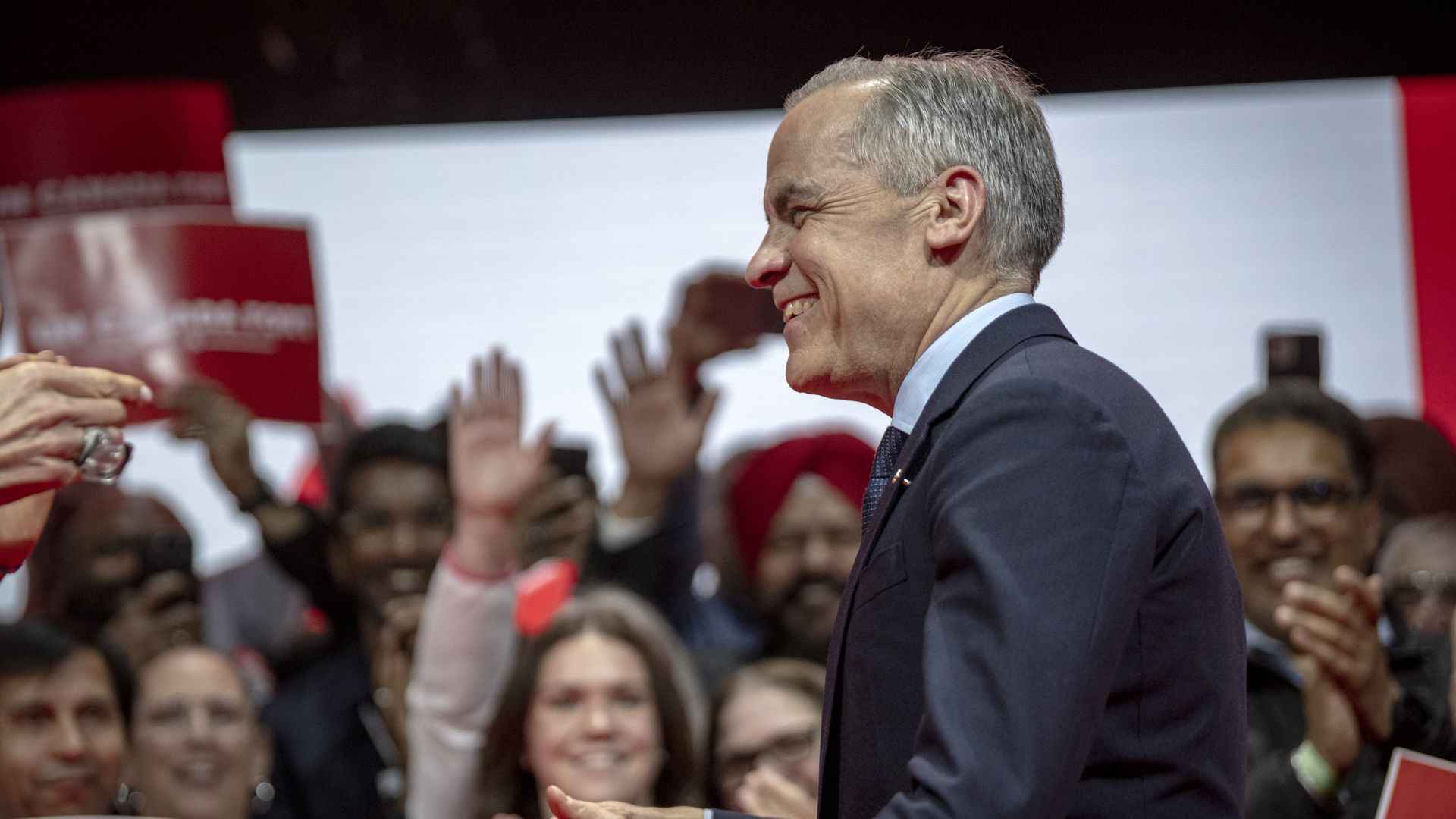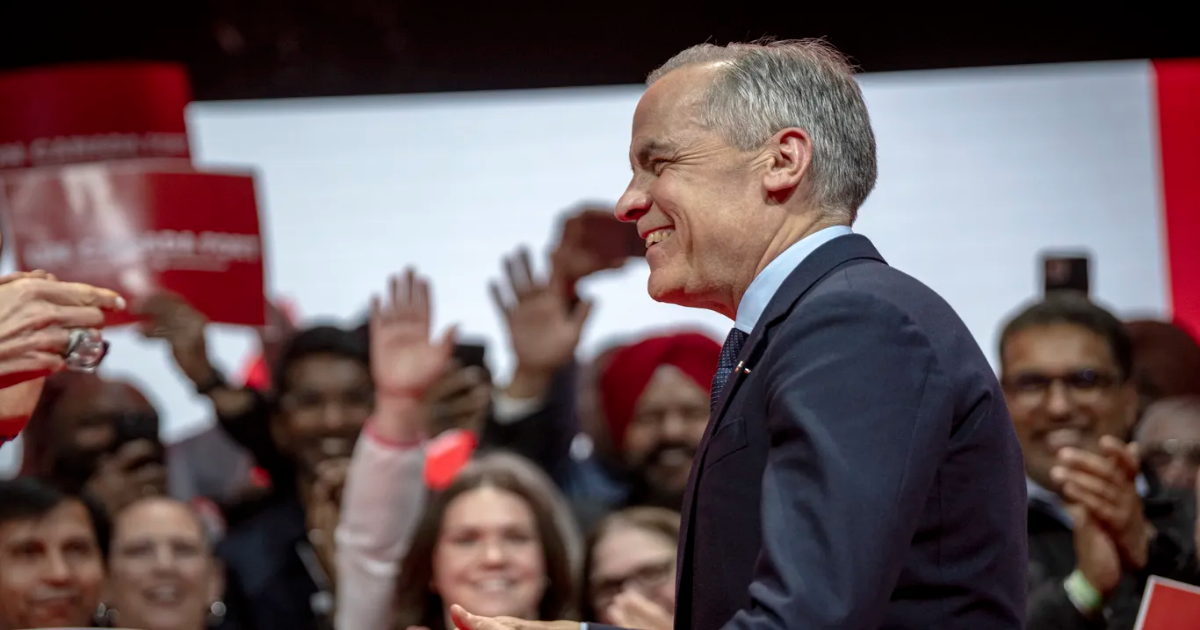
Canadian Prime Minister Mark Carney is establishing new boundaries for his country with the U.S., declaring that the previous relationship between the two nations — where each worked to integrate with the other — is over.
Why it matters: Carney’s words reflect the priorities of many Canadians who saw the election as not only a referendum on their country, but its relations with the U.S. and President Trump.
- Trump has repeatedly said he wants Canada to become the 51st state, while increasing tariffs on certain goods from the nation, prompting concern and boycotts from the U.S.’s northern neighbor.
What they’re saying: “The system of open global trade anchored by the United States, a system that Canada has relied on since the second World War, a system that, while not perfect, has helped deliver prosperity to our country for decades, is over,” Carney said in a victory speech Monday night.
- “These are tragedies, but it’s also our new reality. We are over the shock of the American betrayal, but we should never forget the lessons. We have to look out for ourselves and, above all, we have to take care of each other.”
Context: Carney has denied that Canada would become the 51st state of the U.S.
- He’s now positioned himself for a global role in pushing against Trump’s policies, per Reuters.
- Former Prime Minister Justin Trudeau, cast as the “Anti-Trump” during the president’s first term, pushed back against Trump’s first-term tariffs but maintained diplomatic relations. After announcing his resignation as party leader, Trudeau became more aggressive in criticizing Trump’s second-term policies.
State of play: The new dynamic between the U.S. and Canada, now that Carney will serve a full term as prime minister, is a pivot from decades of tradition and trade diplomacy.
- U.S. and Canada’s trade relationship supports millions of jobs in each country, and the U.S. is the single greatest investor in Canada, per the Canadian government’s website.
- Carney said the Monday’s election marked “one of those hinge moments of history.”
Zoom out: Pierre Poilievre, Canada’s Conservative Party leader, not only lost his shot at becoming prime minister but also his two-decade-old Ottawa parliamentary seat.
- While Poilievre started his campaign aligned with Trump and MAGA policies, the U.S. president’s threats toward Canada saw him lose support with voters.
- Monday’s election cemented a stunning comeback from the Liberal Party, which many felt would lose power after Trudeau resigned.
- At the end of 2024, Poilievre had a 25-point lead over Trudeau on being “best equipped to deal with Trump,” per Ipsos polling.
What we’re watching: Carney said he’d keep Canada’s retaliatory tariffs against the U.S. in place.
Go deeper: Carney takes aim at Trump as Liberals claim victory in Canada’s election
